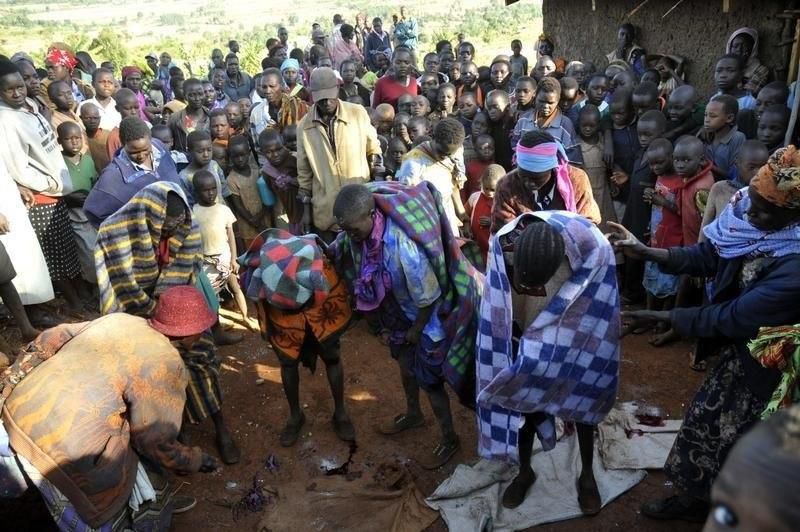Police intensify anti-FGM operations after circumcision of 14 young girls
)
Police on Monday said they have intensified anti-female genital mutilation operations in Kween District.
A 50-year-old ring leader of the FGM operations in Sipi region was charged with aiding and abetting FGM together with other 17 suspects.
The group was arrested after authorities foiled their plans to conduct FMG operations in some villages.
Uganda outlawed the ritual of FGM in 2010 but it continues in some rural communities
Police authorities say efforts are underway to trace for victims in three separate were about 14 girls were mutilated.

"The police are absolutely committed to fighting FGM, and do hope that the successful prosecution of the perpetrators including parents, husbands and victims who mutate themselves, will act as deterrents," part of the statement by police spokesperson Fred Enanga reads.
He adds: "We have meanwhile established contacts with influential community members and other stakeholders to challenge the practice; as well as tasked teachers, health and social care professionals to report cases of FGM once established in the course of their duties in schools and hospitals."
Female genital mutilation (FGM) includes procedures that intentionally alter or cause injury to the female genital organs for non-medical reasons, according to the World Health Organisation.
More than 200 million girls and women alive today have been cut in 30 countries in Africa, the Middle East and Asia where FGM is concentrated.
In 2008, the World Health Assembly passed a resolution on the elimination of FGM.

)
)
)
)
)
)